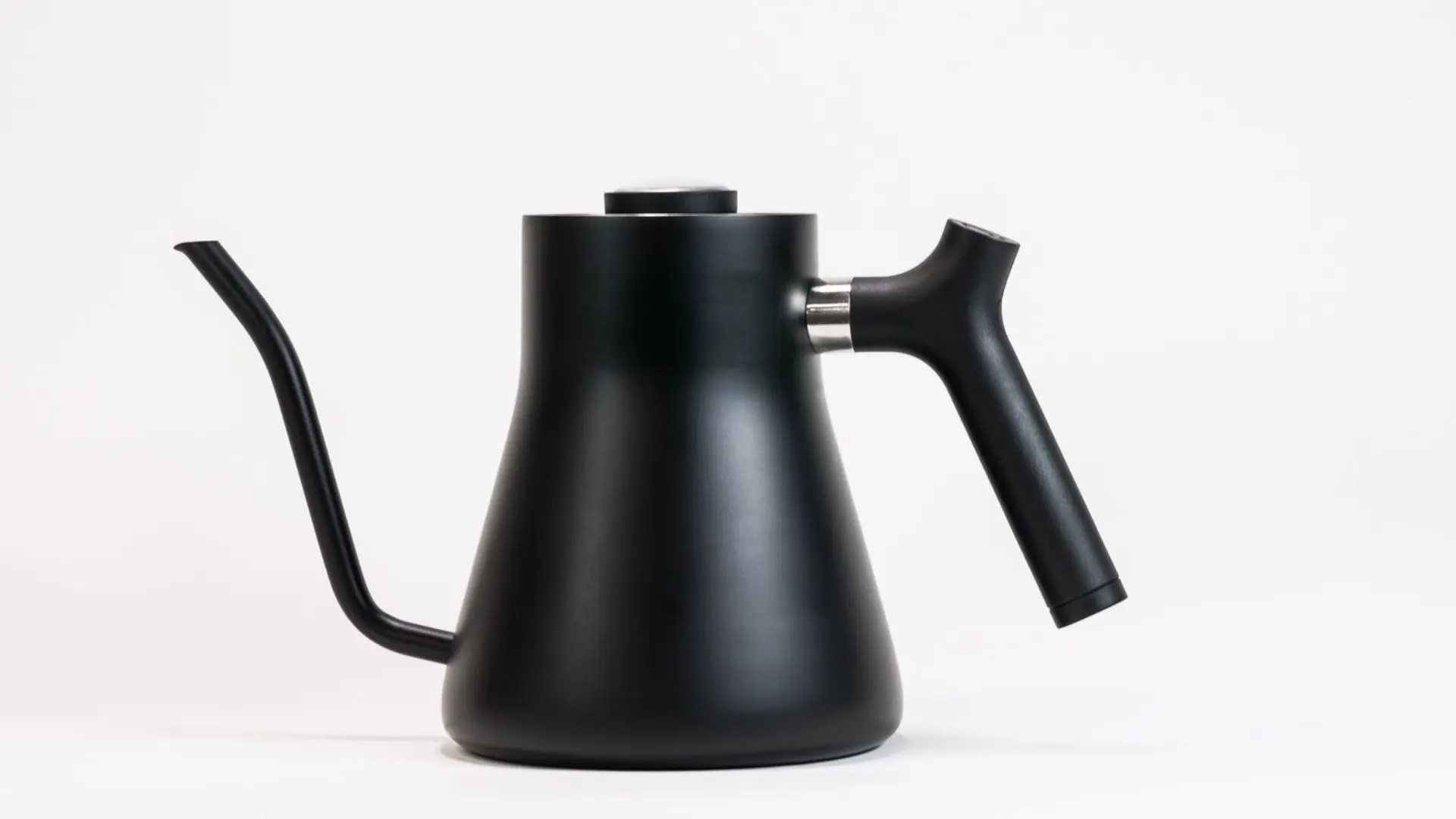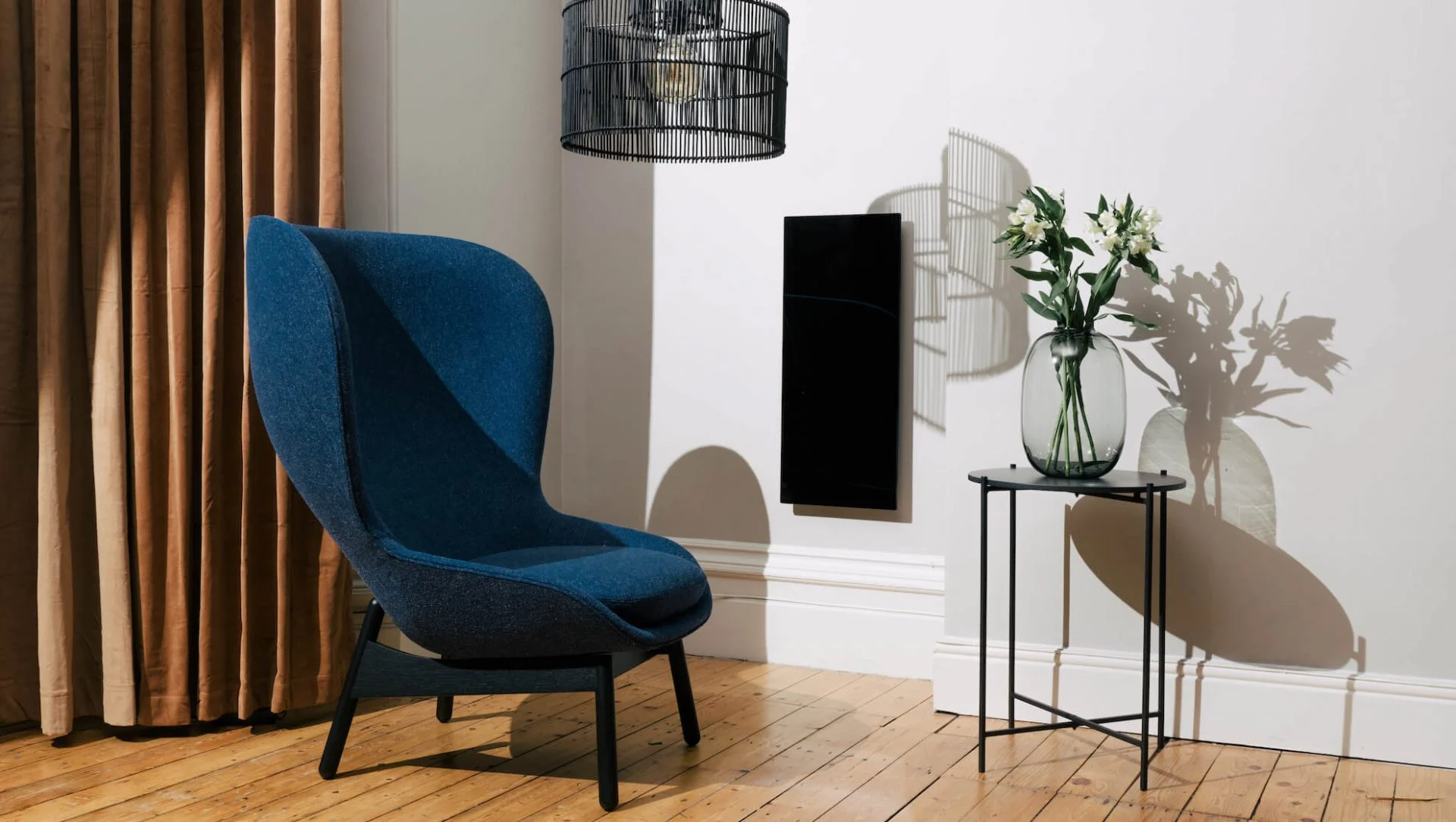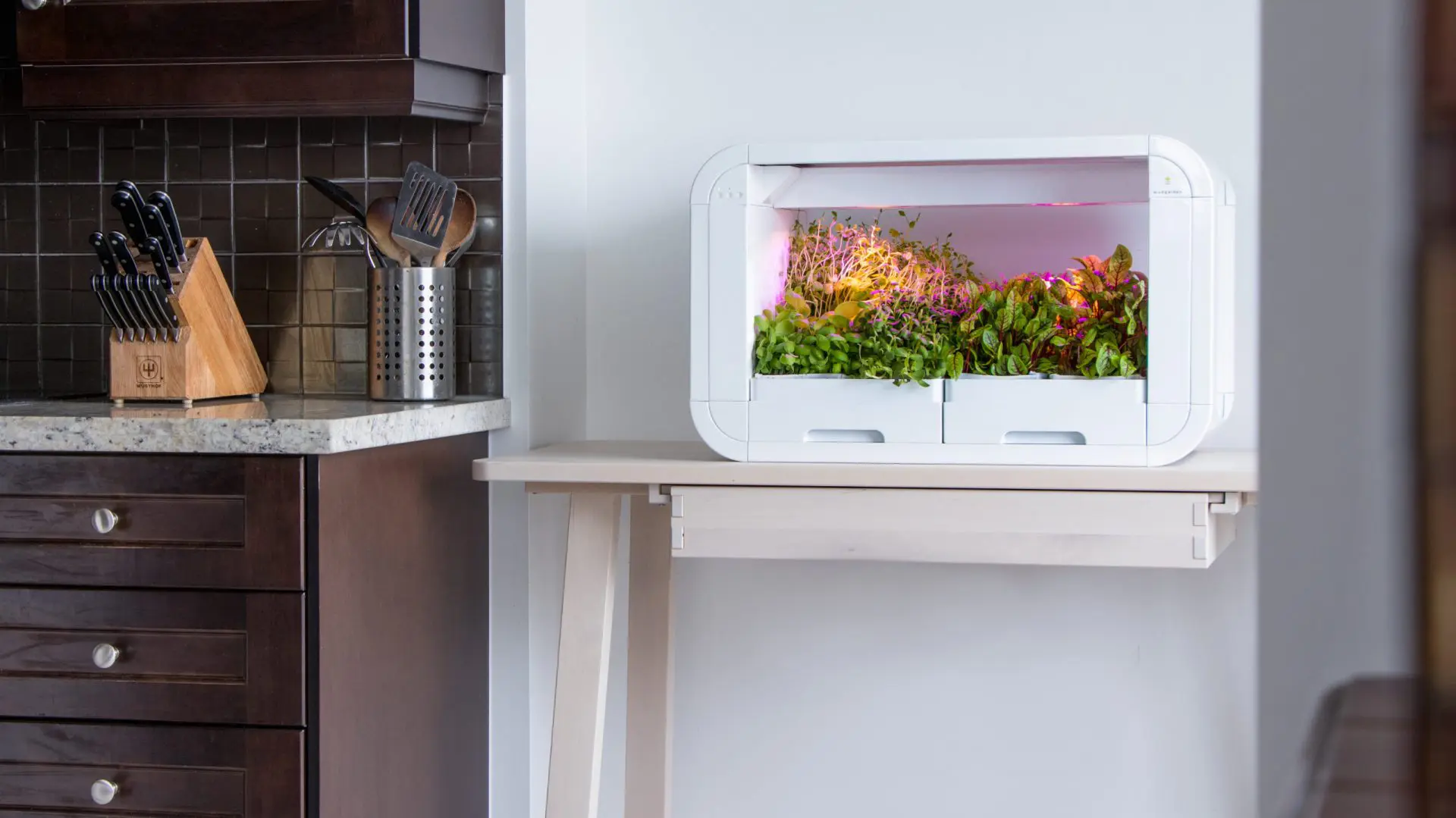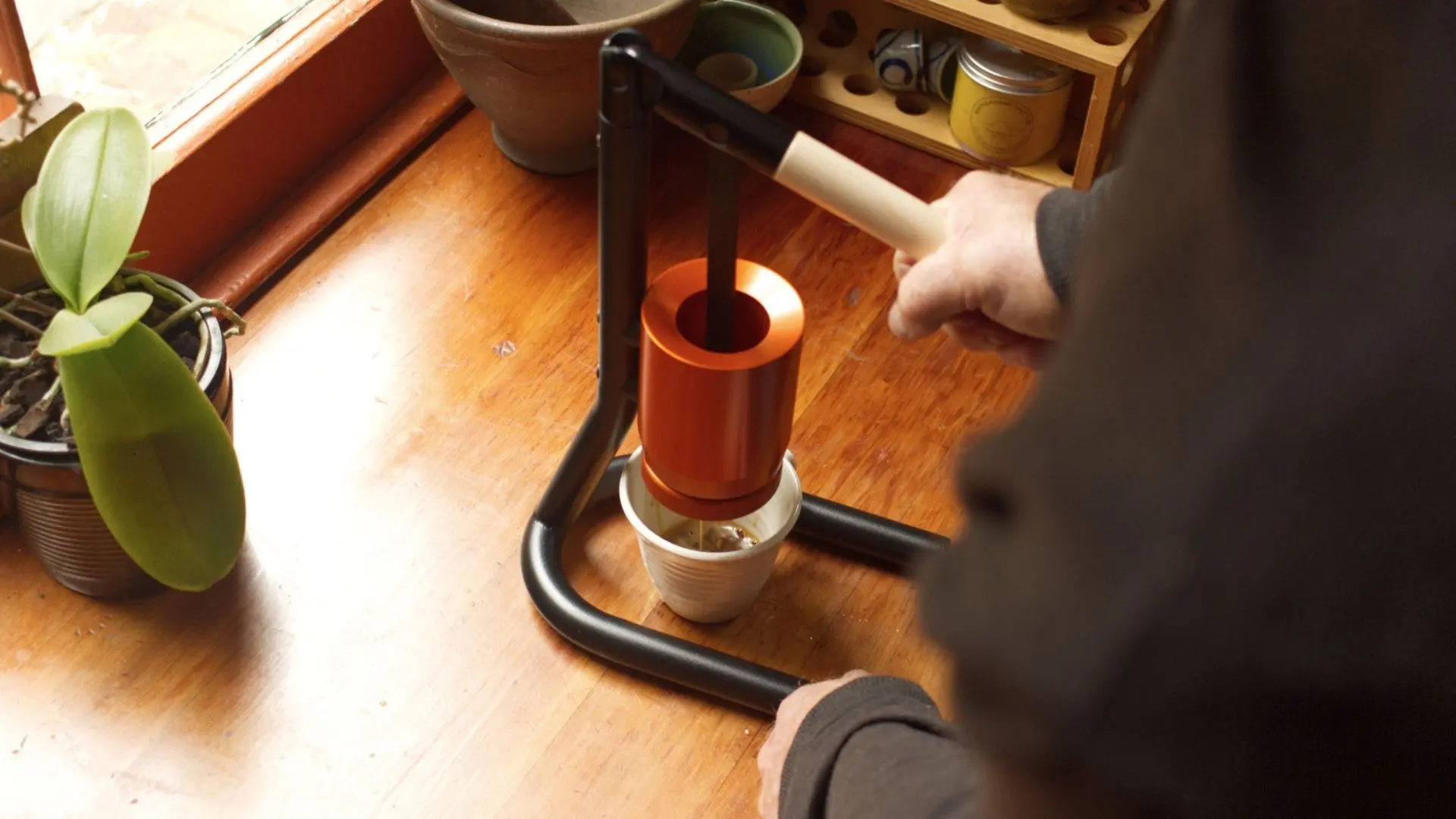The idea behind the Cuboid has been percolating in Gustav Rosén’s mind for over a decade
The Cuboid and Cuboid+, the world’s smallest power strips, mark Swedish design brand Kord’s electrifying debut. Made from 50 per cent recycled materials and superiorly functional, the inventive products prove that everyday objects can, in fact, be picturesque.

Although F. Scott Fitzgerald taught us that we can’t repeat the past, there are those rare moments in life when we find ourselves subliminally connected to our past selves and suddenly (and just as magically), we wholeheartedly experience the palpability of our sacred timeline. One such moment took Gustav Rosén, co-founder and Head of Design of Kord, by surprise during the initial stages of developing the Swedish design brand’s introductory product, the Cuboid:
“Right when the first draft was ready, I remembered a candle holder in solid aluminium I made over 10 years ago. Just like the Cuboid, it can be placed in different positions. But the funny coincidence was that it had exactly the same dimensions as the Cuboid. Even the diameter and the placement of the hole for the tealight is the same. So, I dug out the candle holder, took a look at it and felt that yes, this might be the first product. And then the other team members agreed.” Whether labeled as serendipitous, pure coincidence or neither, it felt like they were on the right track.

And they were. Making their dazzling debut during Stockholm Design Week 2025, Kord’s Cuboid and Cuboid+ are the world’s smallest power strips featuring three to four outlets, a two-meter cable, and, in the case of Cuboid+, USB-C ports. Inspired by and rooted in Scandinavian design traditions, fundamentally, the brand seeks to transform the presence and understanding of everyday objects by blending groundbreaking functionality with elegant and minimalist design and sustainable practices.

Rosén alludes to “sorting the concept into two separate mood boards”: an elegant and minimalist one and one that explored more extravagant and sculptural visuals. Traces of both can be detected within the product assortment they chose to launch with. After having “literally seen every picture on the entire internet of existing power strips,” he explored and got to know all possible technical aspects “and built up a library of components like sockets, jacks and earth pins that I reused when testing the over 35 different concepts”.
Then when Stockholm’s Royal Institute of Technology graduate tried to find a minimal geometry and assemble the components without material collisions, he discovered the formula of what would become the Cuboid–“The asymmetrical placement of the holes is therefore an interplay between the technical constraints and at the same time gives the product character and was immediately appealing to me. So it is the result of a holistic understanding of the ultimate limits of geometric and technical constraints, functionality and aesthetics.”

But let’s rewind the tape. Kord stems from the notion that everyday objects deserve better design. With his extensive experience in high-end retail and e-commerce, Christian Resell, co-founder of Kord, recognized a gap in the market for beautifully designed and simultaneously functional power strips. He then teamed up with his entrepreneurial friend Kristian Holmström, and together, they brought in Rosén. As the core product began shaping up, Emil Steenhouwer joined the company, contributing valuable expertise in offices and public spaces, ensuring that the Cuboid would work seamlessly in various environments. Once the Cuboid was refined and entered its final stages, David Lindell came on board as CEO to help take Kord to market and scale the brand into the future.

Resell and Holmström describe how a pivotal moment for the brand was “involving a 100-person focus group, which provided insights that helped in the Cuboid’s final design features, and even sparked ideas for future products. The Cuboid itself has gone through multiple refinements to achieve the balance of form and function we envisioned. We prioritized making the best product possible rather than compromising for the sake of margins.” The power strip felt like a natural starting point for the entire team because “it’s a universally needed item that has seen little innovation. We wanted to prove that even something as overlooked as a power strip could be transformed into an elegant, thoughtfully designed product.”

The asymmetric placement of the outlets found within the Cuboid gives the product a playful and distinct presence. The balance found between form and function renders clarity and purpose to its identity. Sustainability is also a central pillar of Kord’s philosophy. The Cuboid is made from 50 per cent recycled materials, one of the highest levels in the industry for this type of product.

The Cuboid boasts superior functionality as well. Rosén points out that the inventive product “can be pushed up against a wall with only 48 mm. in depth. It also comes with double-sided tape if you want to mount Cuboid on the wall. We added discreet flanges to the wall pad that ensure that the product actually stays on the wall unlike other products using magnets.” Using those built-in magnets, the Cuboid seamlessly integrates with Hidy, a smart and elegant cable management solution in the form of a miniature screen wall made of powder-coated, recycled stainless steel.
The other accessory, the Cumulus Case, acts as a shell that transforms the Cuboid into a sculptural object. Additionally, the built-in magnets and metal plate inside the top surface of the product make it possible to stack two Cuboids on top of one another. They will click and stay neatly placed together, providing 8 outlets in a very small configuration.

Aesthetically, Rosén describes that the team “wants Kord’s products to be something you want to have in front of you–something that blends into the interior but at the same time has its own identity. An object that extends power to devices without compromising the integrity of interior design and architecture.” Used solely on its own or paired with either one of its accessories, the Cuboid is a stylish interior statement piece that will stand the test of time because of its visual straightforwardness and nonchalance.
Almost in unison, the creative collective shares that Kord is just getting started. Their vision for the company is to “expand our portfolio of everyday essentials, applying the same philosophy of thoughtful design, functionality, and sustainability. We want to become a go-to brand for people who care about both aesthetics and usability in their spaces. In the long run, we see Kord growing into a leading design brand that redefines utility-focused products across different categories.” A mischievous look in his eyes, Rosén rebelliously remarks that “Fire and smoke alarms that you have at home are unnecessarily ugly. Aren’t they?” They most certainly are.








